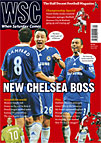 After being plunged into administration in February, Darlington have been left wondering if they will be able to continue to play in League Two. Thom Kennedy investigates the depth of the clubs problems
After being plunged into administration in February, Darlington have been left wondering if they will be able to continue to play in League Two. Thom Kennedy investigates the depth of the clubs problems
If a week is a long time in football, events at League Two Darlington have proved that a day is long enough for a crisis to unfold in the bottom division. On February 21 fans were celebrating a 1-0 victory over Grimsby, and another obstacle on the path to promotion cleared. Curtis Main, 16, had become Darlo’s youngest ever scorer, dropping a neat match-winning header into the bottom corner within moments of coming on, and an exciting run-in lay ahead.
The following Wednesday, the Quakers entered administration for the second time, facing financial ruin, in mid-table with ten points deducted. The next day, a club-wide pay freeze was announced.
It was shockingly sudden. Rumours of administration had only surfaced during the previous night’s defeat to Rochdale, the same day as a new stadium sponsor was announced. During the transfer window chairman George Houghton spent £25,000 to extend striker Liam Hatch’s loan until the season’s end. The club appeared to be running exactly as always – struggling on at a loss.
Houghton had warned the club needed attendances of 6,000 to break even, yet rarely do more than 3,000 turn up. After new season ticket prices were unveiled, offering football for around £12 a match, a furious exchange erupted in the local press between those supporting the plans and others calling Houghton “greedy” for ending an offer allowing children in for free, following misuse by adults entering games using kids’ tickets. Houghton publicly questioned whether Darlington wanted a football club at all.
The gate price of £18 is used by many as a reason for non-attendance, but a price drop to £10, for example, would mean the club needing 10,000 through the gates – a figure Darlington have achieved extremely rarely in 125 years. Every week the club loses £52,000. Debts totalling £5 million, including £3m owed to Houghton, mounted in under three years after his takeover. Given Houghton made his millions in property, it’s understandable that he can no longer pour money into the club during a recession which has severely affected his industry. But with Darlington bound by the League’s wage cap, the speed the debts mounted is stunning.
Supporters blame the 27,000-seat stadium built by controversial former chairman George Reynolds. Of its 25-odd blocks of seats only around ten are used, with the rest of the stadium mothballed. Corporate boxes, a restaurant and conference spaces add revenue streams to profits from an Elton John concert last summer, and £400,000 received for Tommy Wright and David Stockdale, sold to Aberdeen and Fulham respectively. Any list of debts produced by administrators will make interesting reading.
Darlington fans have their hands hovering over their wallets, ready to pour money into the future of football in the town. But nobody knows where their cash should go. Would the money end up vanishing with the club going out of business anyway? Or would putting the money, including £50,000 the supporters’ trust have held since the last period of administration in 2004, into the club help reduce debts and entice another backer?
Suspicions about Houghton were aroused by news that the stadium, which is subject to outline planning permission for massive commercial expansion, has been retained under a different company name, and fans are nervous about who is looking after the club. Moreover, nobody wants to waste money feeding an unmanageable debt when it could be used to establish a new side in the current club’s wake.
Administration comes just when fans were enjoying their football. Manager Dave Penney had assembled a terrific squad. Hatch and strike partner Pawel Abbott had a good understanding, fed by the creative wing play of Liechtenstein international Franz Burgmeier and fans’ favourite Rob Purdie. Steve Foster and Alan White had developed a defensive partnership with a record that was the envy of the Football League.
Within days of administration, Purdie, Hatch, Foster and Abbott were injured, and White suspended after being sent off during defeat at Exeter. Where supporters were delighted at finally seeing a quality team playing their way to promotion, it suddenly looks likely that if Darlington depart League Two, it will be for non-league, as a new club.
Houghton has claimed at least ten other League Two clubs are in financial difficulty. It’s easy to see why. If Darlington are millions in the red with attendances of 3,000, how are the seven teams with lower average attendances coping? Darlington’s latest battle with the bailiffs is another blow to supporters smarting from administration in 2004, and struggling without promotion since 1991. The thought of other clubs facing the same difficulties provides no consolation.
From WSC 266 April 2009